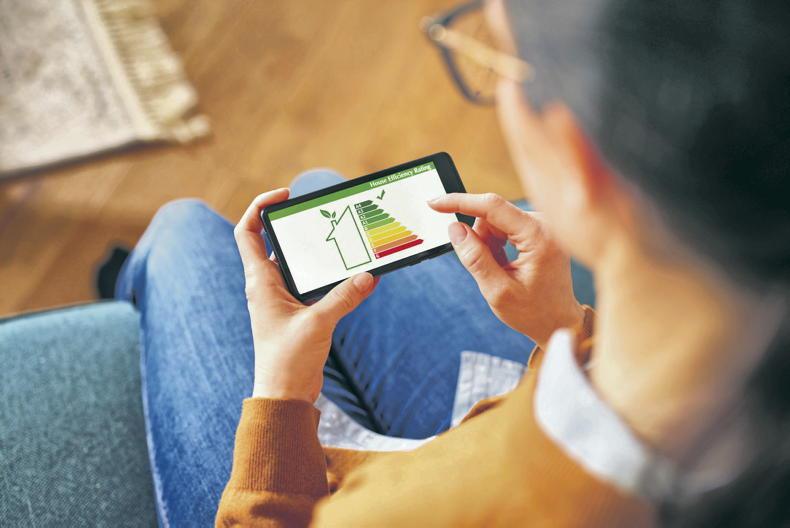The word gets around a neighbourhood – Anne and Peter have COVID-19, Jim has it too, Mary is off work because of it.
While that news isn’t as frightening as it was back in early pandemic, pre-vaccination days; and it’s no longer deemed an international public health concern, it is still worrying when factual reports confirm that a spike or surge in cases is happening.
It is more of a concern if you have an underlying condition like asthma, cancer, diabetes or serious heart conditions as your risk of more severe illness is greater. Getting it while pregnant also represents an added worry.
This is all at a time when mask-wearing is something that only very few do, when sanitisers have run dry at shop doors and complacency may have set in when it comes to coughing into sleeves and binning tissues.
True scale
According to the Health Protection Surveillance Centre, cases have risen significantly in Ireland in the past few weeks. And with compulsory testing finished since the spring of 2023 there is no way of knowing the true scale of cases.
However, the HPSC figures are a good indicator of virus trends. They are based on reported positive cases from GPs, hospitals, nursing homes and residential settings each week.
So what’s the situation?
There were 1042 cases seen in the week Saturday, 15 June to Saturday, 22 June. Compare this to the previous week when there were 650 cases – 60% increase in one week. Let’s go back a week before that, there were 440 cases, showing a percentage increase of 48%.
In the week from 15 to 22 June, there were 486 hospitalisations because of COVID-19, up 56% from the week before. While no Intensive Care Unit (ICU) admissions were reported, three deaths related to the illness were recorded. This is up from a zero figure the week before.
The JN.1 strain is the predominant variant in Ireland, and worldwide, right now. However, it is not designated as a variant of concern and the HPSC says, that it is not believed to be linked with a more serious disease.
Another variant, KP.3, a sub-lineage of JN.1 is increasing in Ireland also, but again, there is no evidence that it is linked to more serious disease.
More outbreaks have occurred in nursing homes, hospitals and healthcare settings recently also. That’s due to increased circulation of COVID-19 in the community. In the past week, 62 outbreaks occurred, up from 48 the week before.
The HPSC spokesperson said that increased waves are usually seen every three to five months and that spring and summer waves tend to be smaller than winter ones.
As regards testing, the HSE no longer provides a service for people to book PCR tests, or order antigen tests, as test centres closed in March 2023.
However, at present, a GP may ask a patient to have a test.
Vaccinations wise, the HSE’s spring booster programme was paused for the summer on 14 June 2024. This was aimed at those aged 80 years and older, people aged five years and older with a weak immune system and those living in a long term care facility for older adults.
Summer spikes are usual, according to the HSE, due to holidays, increased travel and more people getting together for social occasions.
Several other European countries are also reporting increased COVID-19 activity at present, including Belgium and Italy.
Case study: Maria Moynihan
Our feature writer, Maria Moynihan, who lives in Tralee, got COVID-19 for the third time recently. Being pregnant she is extra aware of the illness and takes as many precautions as she can. Luckily, each time, her symptoms were mild.
She tells us what happened:
“Because I am pregnant I would be conscious of it. It’s been a long hard road and I’ve always tried to protect myself. Due to my history of pregnancy loss, I would be under high-risk antenatal care. In terms of COVID-19, I have always had a lot of appointments in hospital so around those times I’d always be conscious of what I was doing. My fear was that I’d get the virus and miss an appointment.
“I also have friends who are immuno-compromised and a family member who works with older people who would be high risk so I’m always aware of that too.
I was on week 32 of my pregnancy when I got COVID-19 recently, on 21 June. I had it twice before and both times it was mild, thank God. This time I got it the day I was finishing up work to take my maternity leave.
Instead of going out for lunch with my husband, I was isolating. I did the test that day because a family member felt a bit ‘off’ that morning and I had been with them a few days earlier. I also wanted to do the test because we were going on holidays.

COVID-19 antigen test kit. \iStock
Symptoms wise, I felt a bit hayfevery but it was nothing I would have taken any real notice of. When I did the test it lit up straight away – I was quite shocked at how quick. I was feeling very tired too but as I haven’t been sleeping well lately due to pregnancy, I attributed it to that.”
As before, I isolated for five days, slept in a different room, used a separate bathroom and wore a mask in the house and disinfected handles etc. Thankfully, my husband and daughter tested negative all through. The last day of isolation was hard because it was my birthday so there were no birthday hugs but these things pass. All in all, it was mild but inconvenient as we had to delay our holiday too.
“Now I am hoping that I will have immunity for the rest of my pregnancy. I am due to have an elective Caesarean and I had a fear of getting COVID-19 near the operation. We are still quite careful. I have a mask in the bag all the time and I use it in very busy places and I stay outdoors when meeting people as much as possible.”
Anecdotally, she has heard of more cases in her area of Kerry lately.
“A relative has tested positive and we’ve heard of another person since. We’ve also heard of a local GP getting a lot of requests for sick certs due to COVID-19, with them saying that they haven’t had as many COVID-19-related calls for a long time so in Kerry, there seems to be a bit of a surge.”
The Irish Pharmacy Union has this advice to minimise your risk to Covid-19 and other respiratory like illnesses.
Wash your hands Cover coughs or sneezes Avoid touching your faceLet fresh air into your homeClean objects and surfaces that other people touchAvail of vaccination and booster vaccination that is offered to you.However, if you need urgent care, phone your GP if you feel very unwell; your breathing changes or becomes difficult; or your cough gets worse. Don’t go to your GP or to a pharmacy in person.
Call 112 or 999 if you are very short of breath and your GP is not available
Symptoms of Covid-19
The JN.1 COVID-19 variant is currently the predominant variant in Ireland and globally, but it is not designated a variant of concern.
The most common symptoms of COVID-19 (coronavirus) are: fever (high temperature – 38 degrees celsius or above) - including having chills; dry cough; and fatigue (tiredness).
Many of the symptoms of COVID-19 can be treated at home. Most people feel better after a few days or weeks, the HSE says. If you have tested positive, avoid contact with other people; get lots of rest and sleep; and drink enough water to avoid dehydration – your pee should be light yellow or clear.
For more information visit www2.hse.ie/conditions/covid19/ and www2.hse.ie/conditions/covid19/preventing-the-spread.
Other data
Dublin has the highest incidence of cases with Cork coming second. Leitrim, Longford and Roscommon had the lowest number of cases.
The strongest risk factor for COVID-19 continues to be age, according to the HPSC.
The 65+ age group is most affected each week with 583 recorded cases in Week 25. The 0-14 year-old group had 85. The 45-64 year-old group had 194 cases and the 25-44 group had 143. The least affected group was the 15-24 year-old group which had 36 cases.
The word gets around a neighbourhood – Anne and Peter have COVID-19, Jim has it too, Mary is off work because of it.
While that news isn’t as frightening as it was back in early pandemic, pre-vaccination days; and it’s no longer deemed an international public health concern, it is still worrying when factual reports confirm that a spike or surge in cases is happening.
It is more of a concern if you have an underlying condition like asthma, cancer, diabetes or serious heart conditions as your risk of more severe illness is greater. Getting it while pregnant also represents an added worry.
This is all at a time when mask-wearing is something that only very few do, when sanitisers have run dry at shop doors and complacency may have set in when it comes to coughing into sleeves and binning tissues.
True scale
According to the Health Protection Surveillance Centre, cases have risen significantly in Ireland in the past few weeks. And with compulsory testing finished since the spring of 2023 there is no way of knowing the true scale of cases.
However, the HPSC figures are a good indicator of virus trends. They are based on reported positive cases from GPs, hospitals, nursing homes and residential settings each week.
So what’s the situation?
There were 1042 cases seen in the week Saturday, 15 June to Saturday, 22 June. Compare this to the previous week when there were 650 cases – 60% increase in one week. Let’s go back a week before that, there were 440 cases, showing a percentage increase of 48%.
In the week from 15 to 22 June, there were 486 hospitalisations because of COVID-19, up 56% from the week before. While no Intensive Care Unit (ICU) admissions were reported, three deaths related to the illness were recorded. This is up from a zero figure the week before.
The JN.1 strain is the predominant variant in Ireland, and worldwide, right now. However, it is not designated as a variant of concern and the HPSC says, that it is not believed to be linked with a more serious disease.
Another variant, KP.3, a sub-lineage of JN.1 is increasing in Ireland also, but again, there is no evidence that it is linked to more serious disease.
More outbreaks have occurred in nursing homes, hospitals and healthcare settings recently also. That’s due to increased circulation of COVID-19 in the community. In the past week, 62 outbreaks occurred, up from 48 the week before.
The HPSC spokesperson said that increased waves are usually seen every three to five months and that spring and summer waves tend to be smaller than winter ones.
As regards testing, the HSE no longer provides a service for people to book PCR tests, or order antigen tests, as test centres closed in March 2023.
However, at present, a GP may ask a patient to have a test.
Vaccinations wise, the HSE’s spring booster programme was paused for the summer on 14 June 2024. This was aimed at those aged 80 years and older, people aged five years and older with a weak immune system and those living in a long term care facility for older adults.
Summer spikes are usual, according to the HSE, due to holidays, increased travel and more people getting together for social occasions.
Several other European countries are also reporting increased COVID-19 activity at present, including Belgium and Italy.
Case study: Maria Moynihan
Our feature writer, Maria Moynihan, who lives in Tralee, got COVID-19 for the third time recently. Being pregnant she is extra aware of the illness and takes as many precautions as she can. Luckily, each time, her symptoms were mild.
She tells us what happened:
“Because I am pregnant I would be conscious of it. It’s been a long hard road and I’ve always tried to protect myself. Due to my history of pregnancy loss, I would be under high-risk antenatal care. In terms of COVID-19, I have always had a lot of appointments in hospital so around those times I’d always be conscious of what I was doing. My fear was that I’d get the virus and miss an appointment.
“I also have friends who are immuno-compromised and a family member who works with older people who would be high risk so I’m always aware of that too.
I was on week 32 of my pregnancy when I got COVID-19 recently, on 21 June. I had it twice before and both times it was mild, thank God. This time I got it the day I was finishing up work to take my maternity leave.
Instead of going out for lunch with my husband, I was isolating. I did the test that day because a family member felt a bit ‘off’ that morning and I had been with them a few days earlier. I also wanted to do the test because we were going on holidays.

COVID-19 antigen test kit. \iStock
Symptoms wise, I felt a bit hayfevery but it was nothing I would have taken any real notice of. When I did the test it lit up straight away – I was quite shocked at how quick. I was feeling very tired too but as I haven’t been sleeping well lately due to pregnancy, I attributed it to that.”
As before, I isolated for five days, slept in a different room, used a separate bathroom and wore a mask in the house and disinfected handles etc. Thankfully, my husband and daughter tested negative all through. The last day of isolation was hard because it was my birthday so there were no birthday hugs but these things pass. All in all, it was mild but inconvenient as we had to delay our holiday too.
“Now I am hoping that I will have immunity for the rest of my pregnancy. I am due to have an elective Caesarean and I had a fear of getting COVID-19 near the operation. We are still quite careful. I have a mask in the bag all the time and I use it in very busy places and I stay outdoors when meeting people as much as possible.”
Anecdotally, she has heard of more cases in her area of Kerry lately.
“A relative has tested positive and we’ve heard of another person since. We’ve also heard of a local GP getting a lot of requests for sick certs due to COVID-19, with them saying that they haven’t had as many COVID-19-related calls for a long time so in Kerry, there seems to be a bit of a surge.”
The Irish Pharmacy Union has this advice to minimise your risk to Covid-19 and other respiratory like illnesses.
Wash your hands Cover coughs or sneezes Avoid touching your faceLet fresh air into your homeClean objects and surfaces that other people touchAvail of vaccination and booster vaccination that is offered to you.However, if you need urgent care, phone your GP if you feel very unwell; your breathing changes or becomes difficult; or your cough gets worse. Don’t go to your GP or to a pharmacy in person.
Call 112 or 999 if you are very short of breath and your GP is not available
Symptoms of Covid-19
The JN.1 COVID-19 variant is currently the predominant variant in Ireland and globally, but it is not designated a variant of concern.
The most common symptoms of COVID-19 (coronavirus) are: fever (high temperature – 38 degrees celsius or above) - including having chills; dry cough; and fatigue (tiredness).
Many of the symptoms of COVID-19 can be treated at home. Most people feel better after a few days or weeks, the HSE says. If you have tested positive, avoid contact with other people; get lots of rest and sleep; and drink enough water to avoid dehydration – your pee should be light yellow or clear.
For more information visit www2.hse.ie/conditions/covid19/ and www2.hse.ie/conditions/covid19/preventing-the-spread.
Other data
Dublin has the highest incidence of cases with Cork coming second. Leitrim, Longford and Roscommon had the lowest number of cases.
The strongest risk factor for COVID-19 continues to be age, according to the HPSC.
The 65+ age group is most affected each week with 583 recorded cases in Week 25. The 0-14 year-old group had 85. The 45-64 year-old group had 194 cases and the 25-44 group had 143. The least affected group was the 15-24 year-old group which had 36 cases.










SHARING OPTIONS